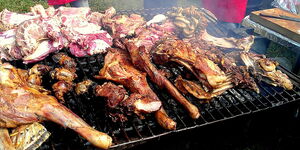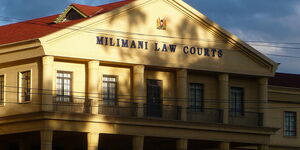At the turn of this century's first decade, the wealthy family of the tycoon Gerishon Kirima found itself in the headlines over a fierce fight touching the distribution of his vast wealth.
At the time, Kirima was frail due to his old age and only served as a spectator in the fight over who should inherit his hard-earned wealth.
The fight presented a sorry state of affairs for the billionaire who had toiled since the mid-60s in an attempt to make his sunset life comfortable and fuss-free.
His journey began before the country gained its independence when he moved to Nairobi in 1960 and set up a carpentry shop for his wife in Kayole. He also served as a carpenter for the University of Nairobi.
When the colonialists started leaving the country and Indians closed their shops after 1963, Kirima was among the frontiers of a new age of Kenya's entrepreneurs.
He opened a number of butcheries and bars in the middle class estates that had previously been the preserve of the Indian community. He quickly became one of the leading businessmen in the industry.
With the savings he had set aside, he purchased huge parcels of land in the city competing with the Kenyatta family as some of the leading landlords.
The tycoon bought 980 acres of land divided into three, 500 acres, 472 acres and 108 acres.
He started rearing domestic animals which he supplied to his butcheries and bars. It is for this reason that he is described by many as the father of Nyama Choma.
Kirima also founded a bus service dubbed Kirima Bus Service that operated long distance but was edged out of the business in 1973 largely due to a directive from the founding President Jomo Kenyatta.
After the directive, the Murang'a native pleaded with President Jomo Kenyatta to liberalize the meat market and allow the establishment of private abattoirs in the city. The founding president agreed to the request making Kirima the first black Kenyan to own an abattoir.
He also continued to build his real estate business fanned by the increased migration of individuals from rural areas to urban in search of a better life.
The tycoon built rentals across the city and by the aughts, he ran a housing empire that collected monthly rental income of Ksh20 million as of 2005.
With all his businesses growing exponentially, he set up a company known as Kirima & Sons which he used to manage the businesses ranging from real estate to meat producer and coffee farms.
It is said that Kirima subjected his children to picking coffee from his vast farms despite his riches in an effort to teach them the value of discipline and hard work even though he had not received a formal education.
In the early 2000s when his health started failing, however, he could not enjoy his wealth when his then wife, Terresia Wairimu, clashed with her step-children over who was to control the estate.
So bad was the fallout that Wairimu once locked the tycoon up in his house and reinforced the cordon with welded steel in one of the main entrances. It took police intervention to rescue the tycoon.
In December of 2010, Kirima passed away in a South Africa hospital while on treatment and the fight over his property raged on till April 2014. It was only solved after court intervention.












